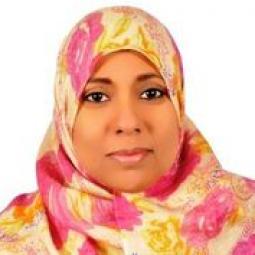New TWAS prize for women goes to a chemist from Ghana
November 14, 2016
TWAS 27th Annual Meeting is being hosted this year in Kigali, Rwanda, and at the opening ceremony today prize winners received praise from Rwandan President Paul Kagame.
"I honour all the prize winners here today - your work will certainly make lives better", President Paul Kagame told a packed hall of over 200 delegates. Among the winners was Marian Asantewah Nkansah from Ghana who received the very first 'Fayzah M. Al-Kharafi Prize' which recognizes women scientists from science-lagging countries. The prize is named after the eminient Kuwaiti chemist and academic Fayzah Al-Kharafi, who was the first woman to head a major university in the Middle East (as president of Kuwait University from 1993 to 2002 with a staff of over 1,500). Al-Kharafi was vice president of the World Academy of Sciences until January this year and generously donated this annual prize of USD4,000 to promote and recognise the groundbreaking and important work that women scientists are doing in the developing world despite the immense challenges they face.
Marian Nkansah is a worthy first winner of the prize. She works in the field of environmental chemistry, monitoring the toxicity of heavy metals in food, soil and spices. "Most health problems are environmental rather than genetic," she explains. "What we eat and what we are exposed to can have a huge impact on our health and my job is to measure and expose harmful substances." Nkansah was the recipient of a highly competitive PhD scholarship from the University of Agder in Bergen, Norway, after responding to a call for applications to work on the problems of toxicity in aluminium. After only three years she was able to complete her doctorate and return to KNUST - the Kwame Nkrumah University Of Science & Technology - based in Kumasi, Ghana where she had undertaken her undergraduate and Masters degrees in chemistry. She has been Senior Lecturer there since 2012 and says , "It's great to be back. I can practise what I've learnt and I can engage with the faculty. I am particularly interested in science policy and I am an affiliate of the African Academy of Sciences. At the induction ceremony I gave a presentation on how the continent can maximise the benefits from the sustainable development goals and the African Union Development Agenda 2063."
"My parents are educationalists and most schools in Ghana are on the outskirts. So I grew up in nature. We had a back yard and a poultry farm. My father used to use words like "confine" and "isolate" whena a chicken got sick or was in quarantine. I like those technical terms. I owe my love of science to my father. He would buy me so many books! Then also I was lucky at school - in my first year at junior high my school was brand new - so we were the only year in the whole school. There was a District Science quiz and I got selected. I loved that."
"But of course there have been challenges too", she says. "Governments in developing countries have to deal with disease and feeding people so investing in sophisticated equipment for scientists is not a top priority."
Certainly receiving this prize will give Nkansah international visibility and perhaps she will then be able to raise funds for equipment. What is certain is that she is proud to be a scientist who is making a difference to her country.











































